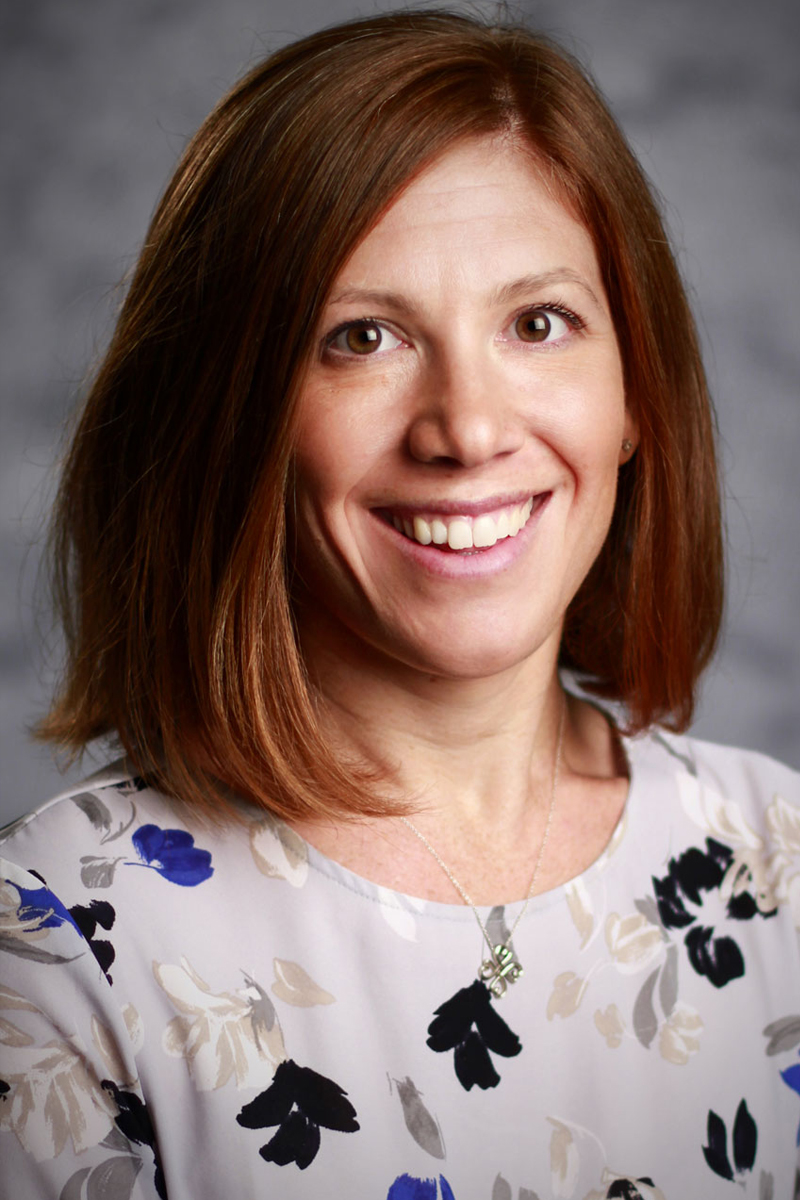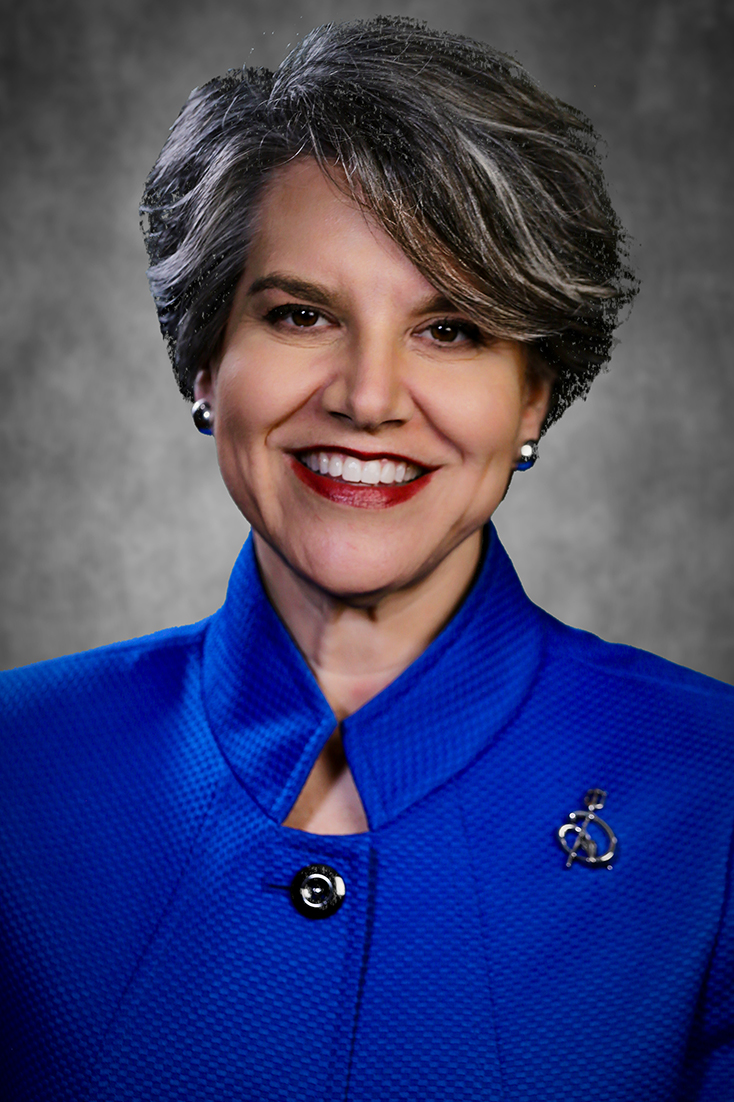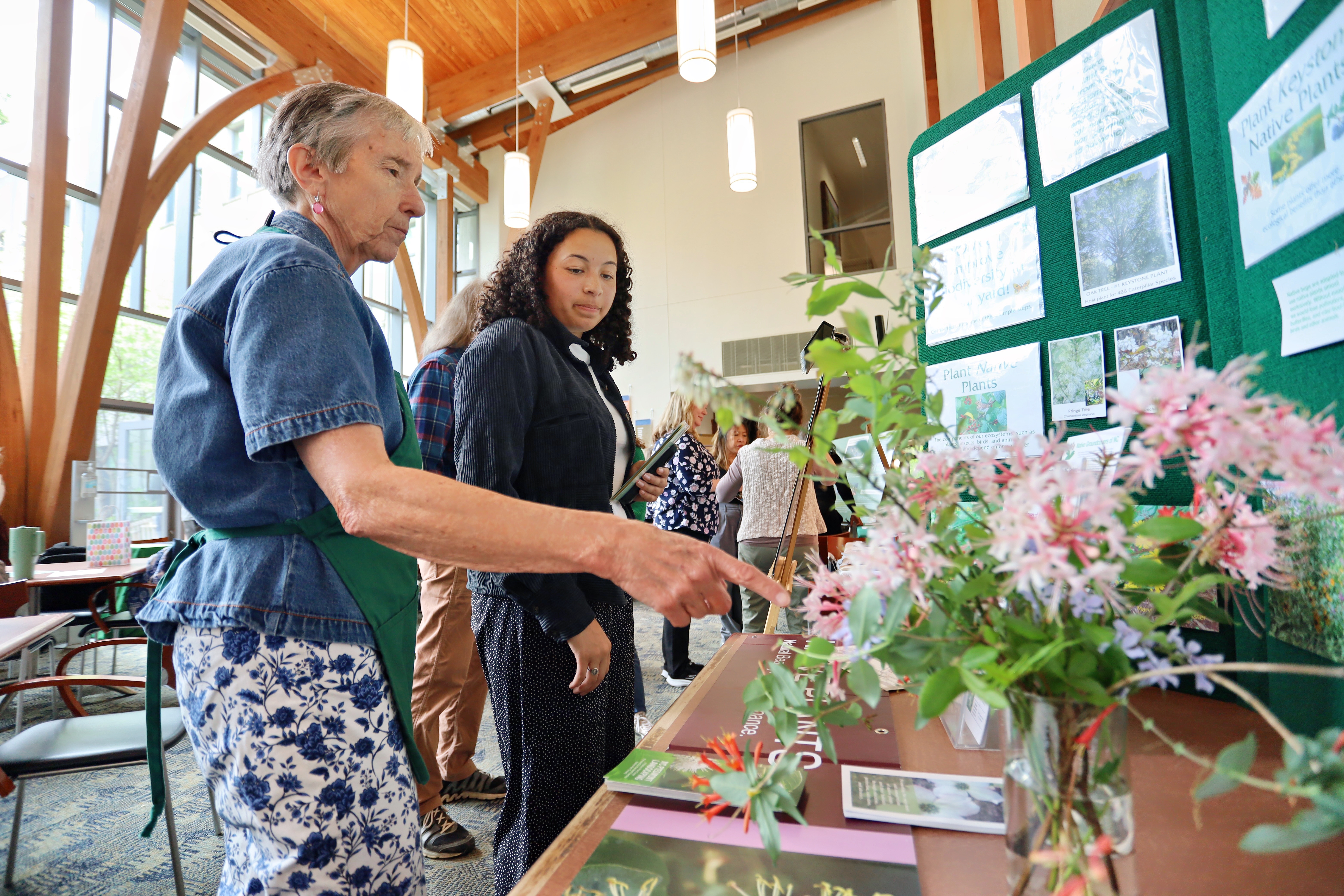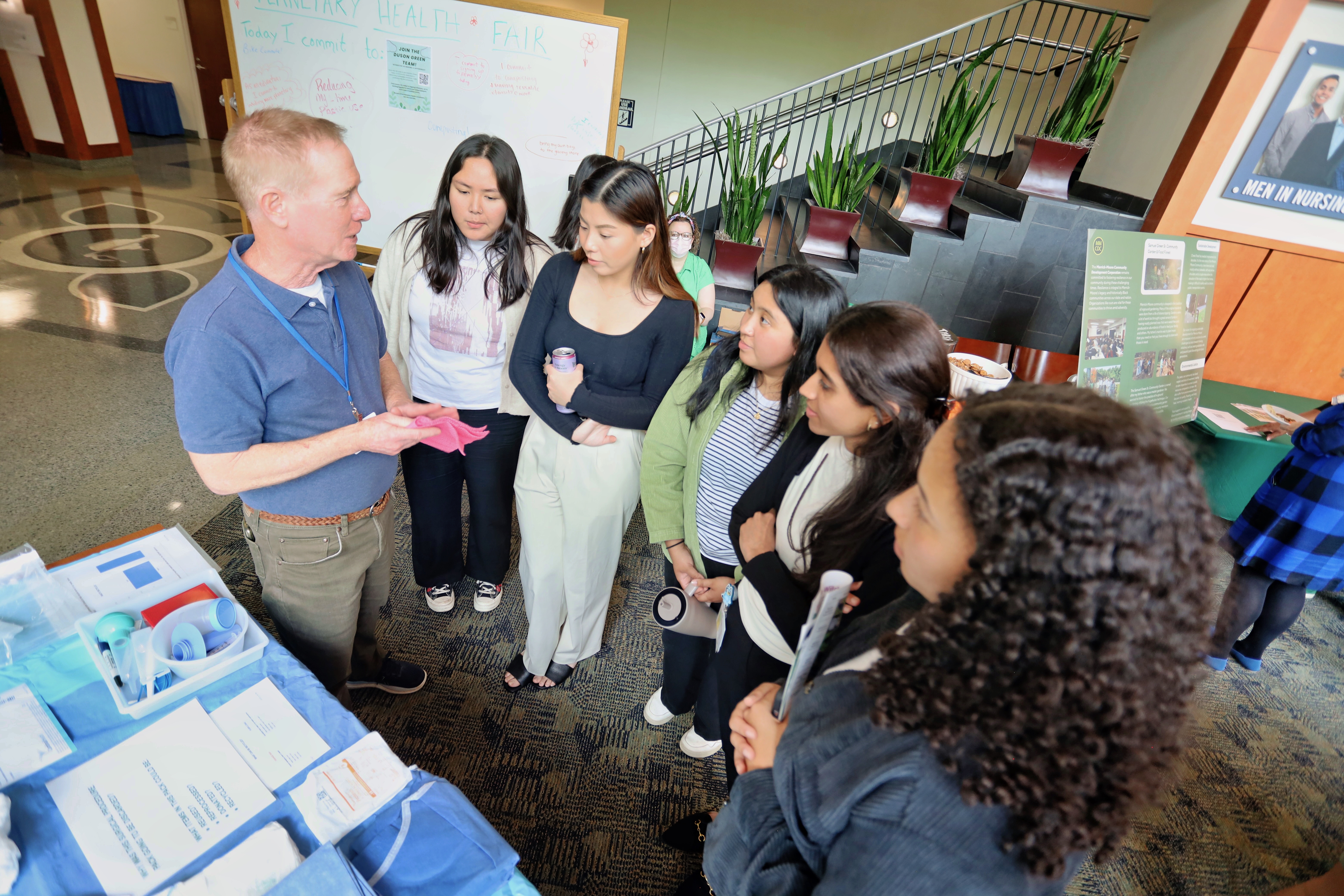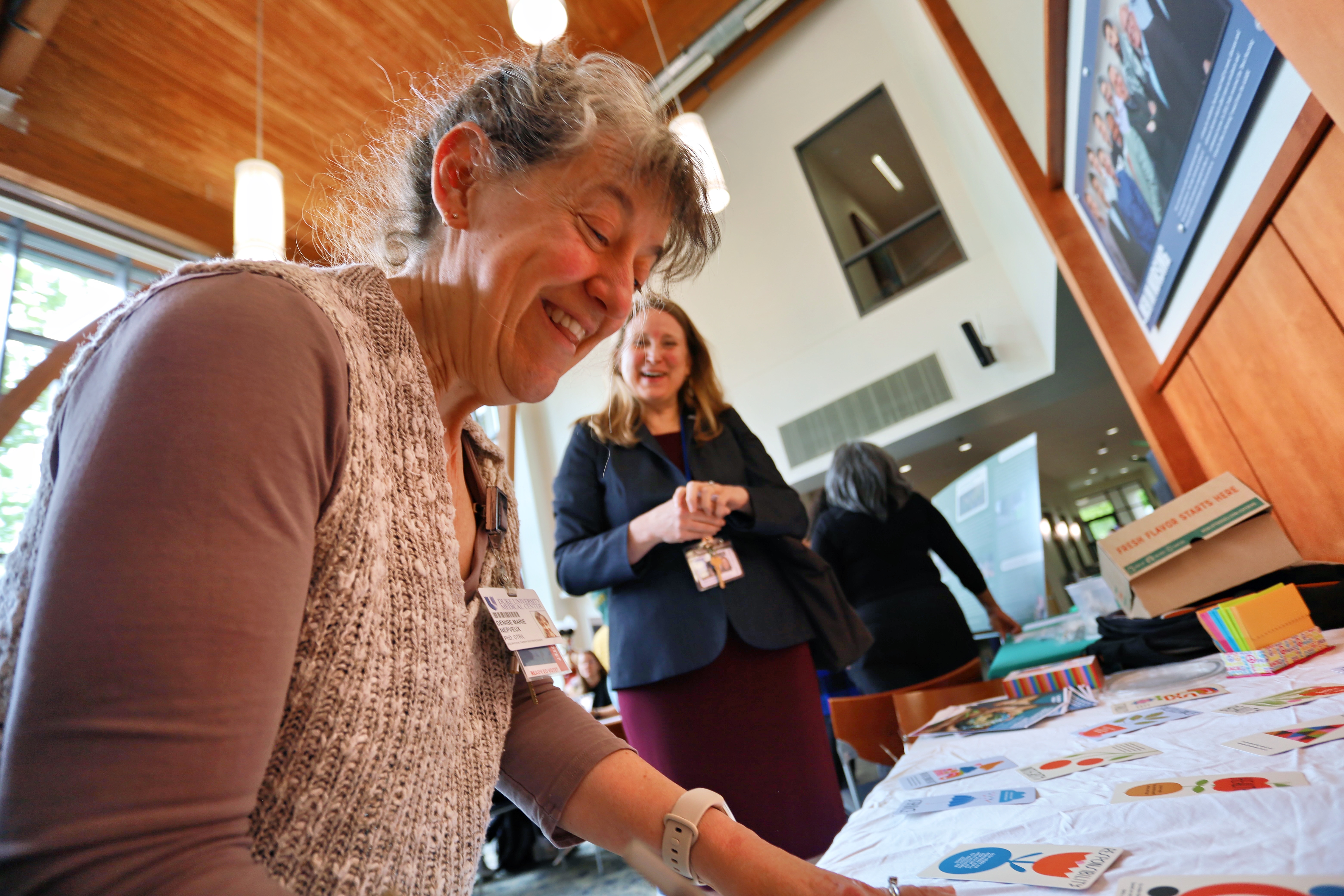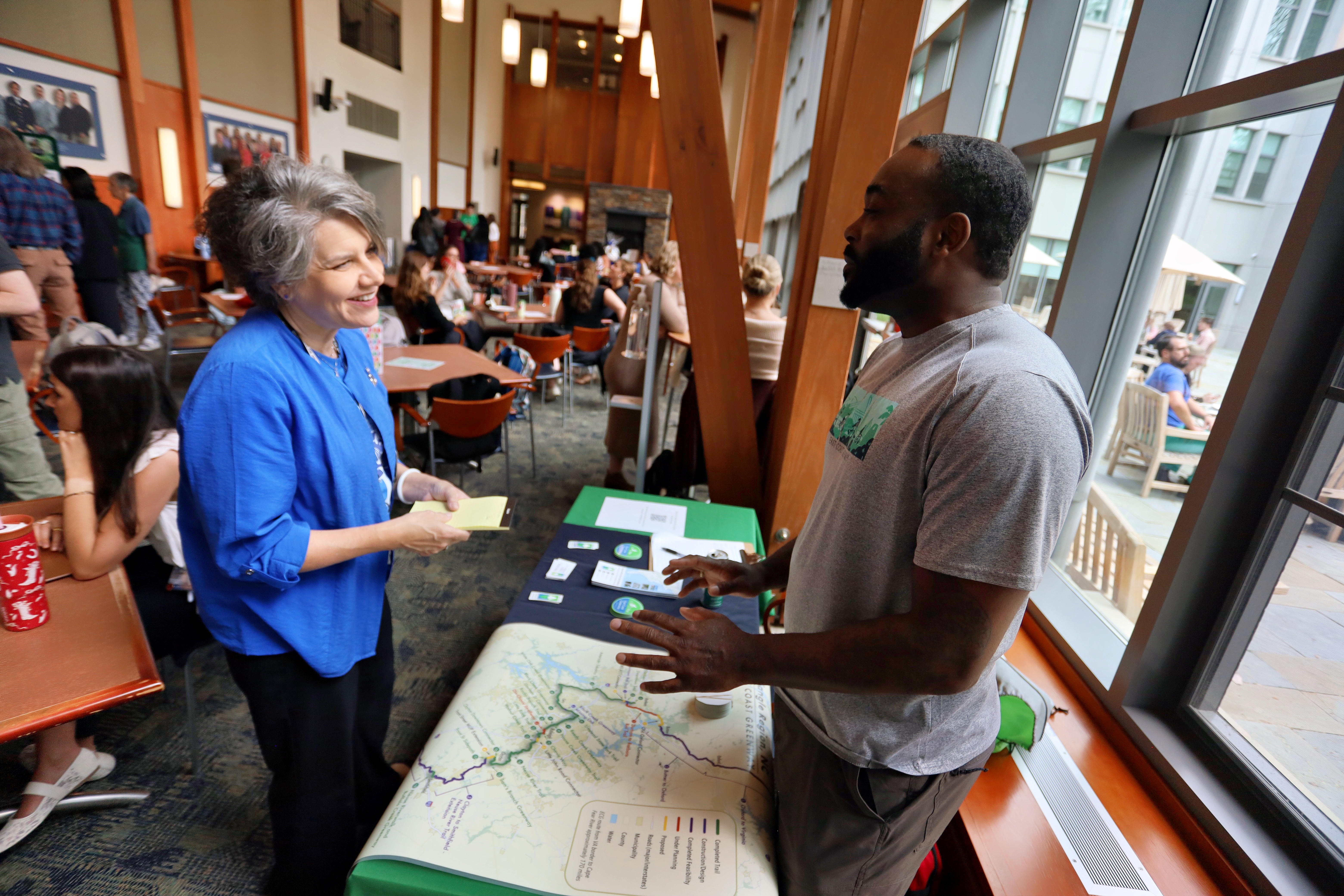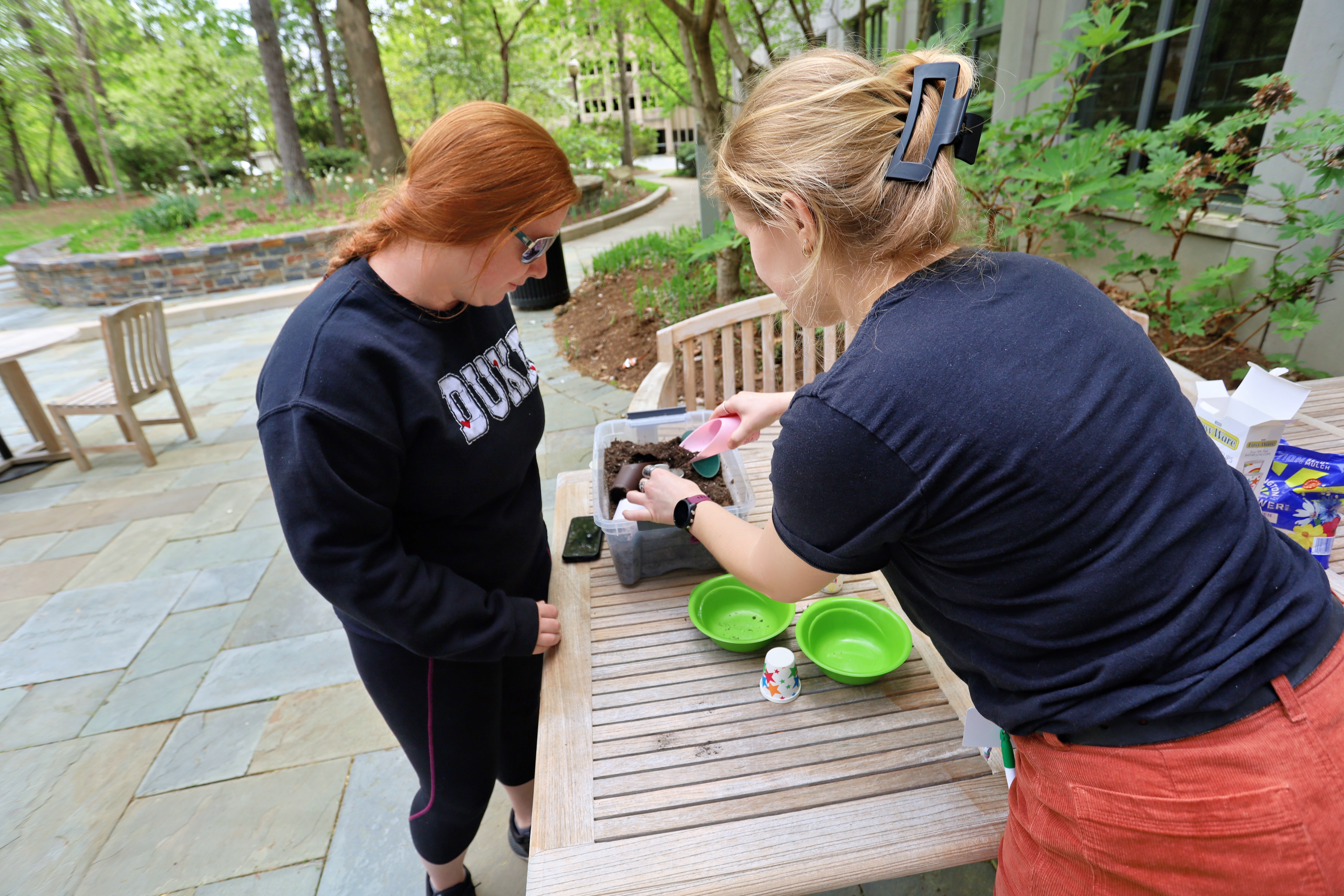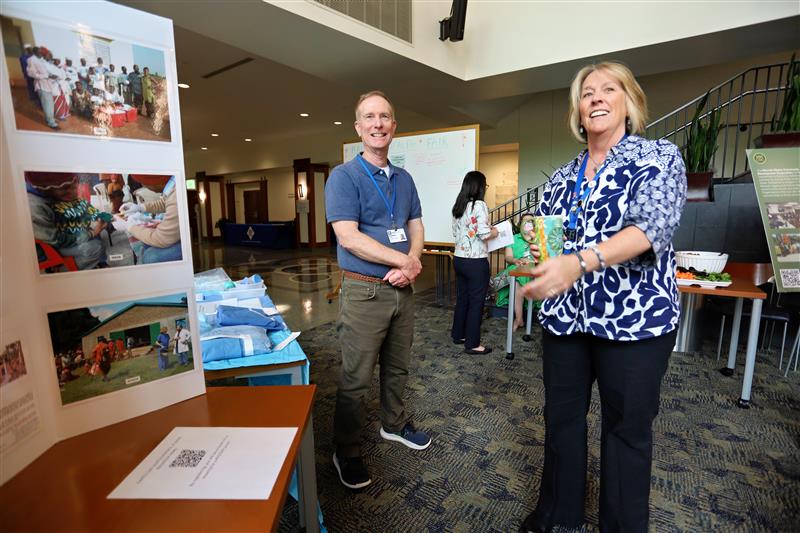School of Nursing Emphasizes Link Between Climate and Health
A pilot course introducing planetary health curriculum into nursing coursework has been adapted into an interdisciplinary Coursera course for students and faculty across Duke. The School also held the inaugural Planetary Health Fair to kick off Earth Month.

According to the World Health Organization, climate change is expected to cause approximately 250,000 additional deaths per year between 2030-2050. Climate change affects social determinants of health by impacting whether people have safe drinking water, clean air, nutritious food, and secure shelter. A new interprofessional pilot course experience co-led by the School of Nursing’s AnnMarie Walton, PhD, RN, MPH, OCN, CHES, FAAN and Brian McAdoo, PhD, Associate Professor of Earth and Climate Science at the Nicholas School of the Environment, aimed to ensure students understand the connection between climate and health equity.
“It began with just wanting to teach my students and not knowing how.”
The innovative, interdisciplinary approach grew out of Walton’s desire to incorporate climate content into the curriculum for her Population Health in a Global Society class, which had an existing module on environmental health. “It began with just wanting to teach my students and not knowing how,” she said.
Walton teamed up with colleagues across Duke including Valerie Sabol, PhD, MBA, ACNP, GNP-BC, ANEF, FAANP, FAAN, Director of Planetary Health in the School of Nursing, the Nicholas School of the Environment, and the School of Medicine to design and implement a course centered on climate change and health (An Introduction to Climate and Health for Healthcare Professionals). In addition to classwork, students participated in activities like planting trees with Keep Durham Beautiful, working with Duke Health sustainability program REMEDY at Duke, and participating in a Climate FRESK, a collaborative module meant to demonstrate the interconnectivity of both challenges and solutions to the climate crisis. The pilot course experience ended last April, with 29 students completing the course.
"Everyone found the experiential learning activities rewarding."
“As frontline providers, nurses have long observed and managed the direct and indirect impacts of climate change, such as increased respiratory illness, heat-related conditions, and the spread of infectious disease,” said Sabol. “It is important that our future nurse leaders not only mitigate climate change impacts, but also adapt to evolving challenges. Innovation is key, as what works today may not be effective tomorrow!”
"Everyone found the experiential learning activities rewarding,” she added. “I personally enjoyed the hands-on outdoor experiences like planting trees. It gave us an opportunity to talk, laugh, and stay physically active together. All of these things are important for our physical and mental health."
“From our review of the course surveys, we know that students really enjoyed the interaction with faculty and with each other and the interdisciplinary nature of all of it,” added Walton.
Sabol and Duke School of Medicine Associate Professor in Orthopedic Surgery Denise Nepveux, PhD, OTR/L are exploring new ways to continue to integrate climate education into healthcare curricula and allow for wider dissemination of links between climate change and health, including the transition of An Introduction to Climate and Health for Healthcare Professionals into a Duke Coursera course that learners can access remotely not only at Duke, but worldwide. The creation of the course was a true interdisciplinary effort, with contributions from School of Medicine colleagues Jennifer Lawson, MD, John Lohnes, MHS, PA-C, and Allyson Sutkowi-Hemstreet, DPT.
“It’s a way to make this campus a lot smaller,” Walton explained, noting that the idea of combating climate change through individual and or local action can often seem overwhelming. “By thinking globally, you end up making local impacts,” she said.
In addition to the ongoing efforts by Walton, Sabol, and colleagues to embed climate curriculum in nursing education, Sabol and the DUSON Green Team hosted the inaugural Planetary Health Fair to kick off Earth Month. Well over a hundred students, faculty, and staff from across Duke gathered in the School of Nursing atrium to learn about the impacts of climate change on healthcare, participate in activities like making native wildflower "seed sachets", and hear from a variety of community partners such as the East Coast Greenway Alliance, REMEDY at Duke, and the Triangle chapter of the North Carolina Native Plant Society.
